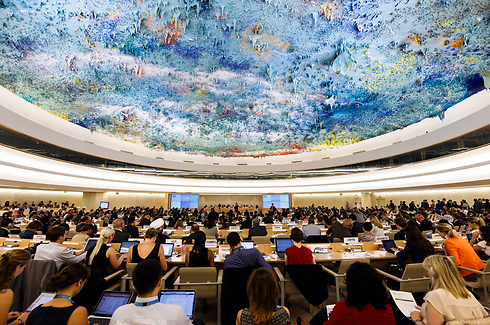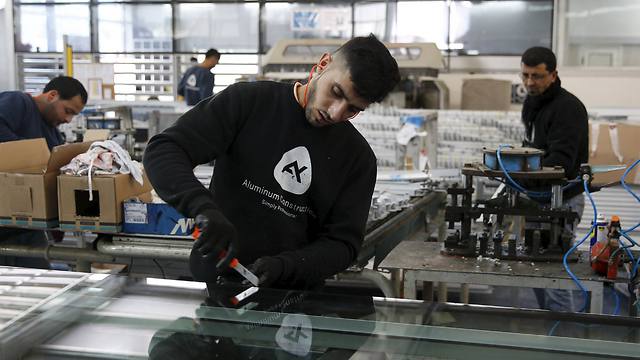Op-ed: The UN Human Rights Council approved a decision instructing the compilation of a blacklist of companies operating in the settlements; though it lacks enforcement capabilities, companies operating in the settlements will not ignore the decision.
A unanimous resolution of the United Nations Human Rights Council (UNHRC) last week obligates its commissioner to assemble a database of business entities directly or indirectly involved in Israeli settlements in disputed territories, and to present it at the UNHRC’s next meeting.
The resolution does not include an enforcement mechanism, so it is toothless in that respect. However, it is not without impact.To the contrary: Unlike the hundreds of other anti-Israeli resolutions that the UNHRC has passed which didn’t change a thing, in Israel or in the wider world, this one is likely to cause serious trouble.
The frequent use of the geographical term “Judea and Samaria” encourages the Israeli public to forget that the international legal system considers all settlements illegal and in violation of international conventions established after World War II. It’s reasonable to assume that no company will want to find itself on a blacklist of lawbreakers, regardless of the political motives of assembling such a list.

Even less so will they want to be on a list carrying the UN logo that’s expected to be published as an official document. Being included in such a “database” would expose any company to calls for a boycott, to other companies quietly severing their business connections, and to various kinds of legal action.
The conclusion: If business connections to Israeli settlements in the territories will indeed be interpreted by any corporation’s legal advisers as a likely legal violation, its board of directors will vote to sever them — without hesitation and regardless of their degree of sympathy towards Israel.
Labeling imported settlement products (as an EU requirement) has hit an impasse in political bureaucracy. The practical implications of this requirement in Europe are insignificant. However, the risk of being placed on a list of companies directly or indirectly involved with Israeli settlements, thus violating international law, is not trivial from any company’s perspective.
Business owners and managers cannot ignore this. This is not merely intimidation for intimidation’s sake. As opposed to capitulating to the economic boycott of Israel led by the BDS movement — a boycott that is forbidden by law in several western countries — obeying UNHRC resolutions is legal and permitted. It may even be included in the criteria for receiving a “social business” label, along the lines of environmental friendliness or avoiding child labor.
The list of Israeli companies working in the settlements is long and includes most of the business sector, from the Israel Electric Corporation to individual contractors, from banks to supermarket chains. Human Rights Watch published a report in January entitled “Occupation, Inc.: How Settlement Businesses Contribute to Israel’s Violation of Palestinian Rights.” The report called on business leaders to stop working in, funding, granting services to, and doing business with settlements. This is the same spirit as the UNHRC’s resolution, even if its practical implementation is not expected before the blacklist’s compilation.

The UNHRC has a long history of one-sided and anti-Semitic acts against Israel. Its resolutions against us are hypocritical, immoral and disproportionate. However, the fact that not one head of government of a state friendly to us has instructed their representatives to vote against the recent resolution is a resounding failure of Israel’s foreign policy, which attempts to erase the legal and political peculiarities of the settlements. This erasure will not be successful, and the more we insist on it, the greater grow the internal economic risks for Israel.
The current government finds it particularly difficult to understand the view that the settlements are illegal. It’s difficult for them politically because of the electorate in West Bank settlements. It’s difficult for them morally because of the ministers’ belief that this is the historical-religious homeland. It’s difficult for them tactically because of the justified fight against BDS and its proxies.
Nevertheless, under great pressure and with no alternative, Israel is coming to terms with a practical separation. Recently, in an agreement with the EU funding a multi-year university research and development project, a condition was agreed upon: That the project not cross the Green Line.
Last week’s UN resolution, creating a comprehensive list of companies with business connections to the settlements, increases the need for a separation such as this to the level of a national test.
As reported by Ynetnews
